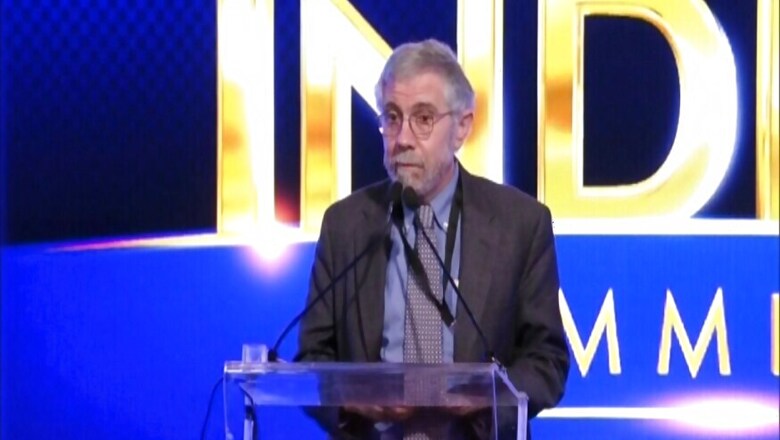
views
New Delhi:Striking notes of hope and of caution, economist and Nobel laureate Paul Krugman has said India could ride the next wave of globalisation, one of services, or it could end up with mass unemployment.
"As the world’s economies took off because of growth in the manufacturing sector, India stood apart and unique. It exported services, which was unprecedented," said Krugman at the News18 Rising India Summit on Saturday.
The noted economist said India has the first-mover advantage for a potential second wave of growth, simply because of its working age population.
It used to be said that services are not exportable, they can only be availed locally. India, Krugman said, changed that. “Britain exports services by way of banking in the city of London, but India branched out into IT, call centres, etc."
Krugman pointed out that the sheer number of people working productively will help an economy grow. He was referring to India’s much talked of the demographic dividend, but only if the country can provide jobs for them.
“India’s lack in the manufacturing sector could work against it, as it doesn't have the jobs essential to sustain the projected growth in demography. You have to find jobs for people," he stressed.
Krugman drew examples of Japan and China to drive home his point. “Japan is no longer a superpower because its working-age population declined, and China is looking the same. In Asia, India could take the lead but only if it also develops its manufacturing sector, not only the services one," he said.
India's sheer number of people that can work and speak English, it’s different, services-based approach made Krugman optimistic about its contained economic growth. That and the fact that India is still poor, still a long way from the cutting edge of technology, and has a lot of space for forward motion.
“Adjusting for purchasing power India is the third largest economy in the world behind only the US and China." This is dramatic progress from the days if the license raj and insurmountable bureaucratic obstacles and this, he said, made it a super power.
“In the '80s, the world’s economy was still colonial, where poor countries exported raw materials and the rich exported manufactured goods," Krugman said. Back then, India was a disappointment for economists, and the gap between its economy and those of richer countries only grew wider.
When changes started happening globally, India’s policymakers took note and changed from a self-sustaining economy to an open one, with lowered tariff rates. This has brought the country a long way.
“I was listening to the Prime Minister's [Modi] speech where he said India's improved its ease of doing business ranking from 148 to 100. That's not a badge of distinction but it's progress," said Krugman.
If China was not part of the story, people would look at India, said Krugman. “Its GDP per capita has quadrupled, and it looks like Japan in the 60s. Japan went on to make a full transformation," he added.













Comments
0 comment